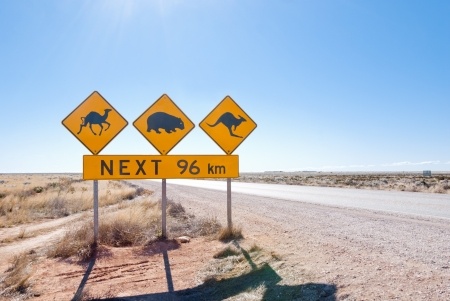
What is the currency in Thailand?
The Thai baht is the national currency in Thailand, and the key to unlocking a wealth of unforgettable experiences, sights, and sounds.
There’s so much to see and do in Thailand, from exploring the vibrant capital of Bangkok to relaxing in its island resorts.
In this guide, we explain what currency you need in Thailand, how best to get your travel money, and whether it’s best to use cash or cards in Thailand.
Thailand currency
The official currency of Thailand is the Thai baht (THB), symbolised by the ฿ sign. Known for its vibrant and distinctive design, the baht has a rich history, linked closely to the nation's heritage. If you want to secure a good rate for your travels, you can buy your Thai baht in advance or check the most up-to-date British pound to Thai baht exchange rate.
The history of the Thai baht
The baht roots go back centuries when it was first introduced as a unit of currency. Until then, shells, rice, and pieces of cut silver had been used as a form of money. It wasn’t until the reign of King Rama I in the late 18th century that the baht emerged as a standardised currency.
The first official baht coins were introduced in 1857 during the reign of King Rama IV. Made of silver, they featured intricate designs reflecting Thai art and culture. Over time, the baht underwent numerous changes in size, shape, and material.
In 1897, the baht was fixed to the British pound, reflecting Thailand's ties to British trade at the time. Since then, the currency exchange rate in Thailand has fluctuated in value with economic and political trends.
Thai baht currency denominations
Thai baht comes in both notes and coins. Banknotes feature portraits of revered Thai monarchs, including the much-loved King Rama IX who reigned for over 70 years.
Thai baht notes
The main denominations of notes are:
- 20 baht (green)
- 50 baht (blue)
- 100 baht (red)
- 500 baht (purple)
- 1,000 baht (brown)
Thai baht coins
You will also come across the following coins:
- 1 satang
- 5 satang
- 10 satang
- 25 satang
- 50 satang
- 1 baht
- 2 baht
- 5 baht
- 10 baht
Exchanging Thai baht
Should I buy Thai baht in the UK?
Whether you should buy baht in the UK before travelling to Thailand is a personal preference. A lot of people feel better prepared to have local currency in hand when they arrive in a new country.
It’s very simple to order currency online in the UK and have it delivered to your home or a local bureau de change. But it’s also a good idea to make sure you have a way of buying baht in Thailand if you need to top up your funds.
That could mean taking some UK currency to exchange, or a bank card to withdraw Thai baht from an ATM or bureau de change.
Should I use cash or a card in Thailand?
Thailand is generally a cash-based society, but paying by bank card is becoming increasingly common, especially in tourist areas and larger hotels and stores.
Major credit cards like Visa and Mastercard are widely accepted, but you’ll need to carry some cash for smaller shops, local markets and for tips, buses, and taxis.
When using a bank card, there will usually be transaction fees charged by your bank or the outlet you’re buying from. Check how much your bank fees will be before travelling, to avoid any shocks.
It's also a good idea to inform your bank about your travel plans to avoid any unexpected card blocking.
Are there ATMs in Thailand?
There are ATMs readily available throughout Thailand, especially in major cities, tourist areas, shopping centres, and airports.
You'll find ATMs belonging to Thai banks as well as international ones such as Citibank, HSBC, and Standard Chartered. Most Thai ATMs have an English language option.
There are usually charges to use ATMs in Thailand. Your home bank may have fees for international withdrawals, and the local Thai bank may also charge you for using the ATM. Fees can vary.
Travel safer with our Travelex Money Card
Experience added peace of mind with the Travelex Money Card—an optimal alternative to carrying your debit card. Unlike your debit card, our Travelex Money Card is not linked to your bank account, minimising your risk of losing all your funds in case of loss or theft.
Use the Travelex Money App to keep track of your spending and top up the balance as needed. It’s a secure way to travel, simply freeze or cancel the card if lost or stolen. T&Cs apply.
Buy your Thai baht online with Travelex today
So now you know what currency you need in Thailand. Ready to start planning your trip? Order your Thai baht today, with competitive exchange rates and no commission. Have your currency delivered at home, or collect it from your nearest store.
You might also like to choose a Travelex Money Card as a safe and secure back up option.
If you’d like to find out more about Thailand and what to see on your trip, see our full Thailand travel guide. We also have some good tips for travelling on a budget.



